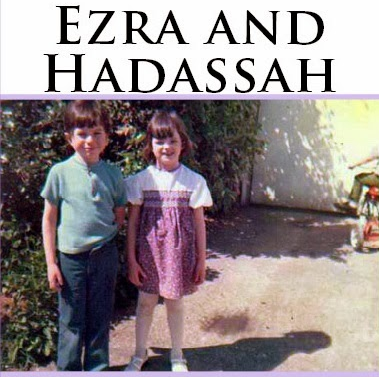Ezra and Hadassah: A Portrait of American Royalty is the gripping account of author Heather Young’s tumultuous childhood at the abusive hands of those into whose care she was entrusted, both her foster and Latter-day Saint adoptive parents. With remarkable courage, wit, and honesty, Heather tells of how she and her special-needs older brother, Rex, spent their earliest years in foster care, making only weekend visits to their biological parents, who were fraught with mental health challenges. Moving from one environment of neglect and abuse to another, the two siblings were abruptly taken from their foster home by Oregon’s Children’s Services Division and placed in the care of their profoundly dysfunctional adoptive family, never again to return to the care of their biological parents. There Heather and Rex endured years of exploitation and denigration by those who were supposed to be their protectors and advocates, forced to live with unrelenting, draconian demands, physical beatings, verbal lashings, and deprivation of food and proper medical care. The purpose of their existence in their adoptive home was to enable the ease and comfort of their guardians who, meanwhile, took great care to project outward appearances of compassion and generosity to all beyond the walls of their home. Heather and Rex would at last be free only when Rex’s developmental challenges culminated in their disowning him, expelling him from the home alone, defenseless, and without a way to fend for himself, and Heather escaping at her first opportunity, the very weekend she turned 18. This is only the first part of the story, though, and Heather and Rex’s lives each go on and later intertwine not only with each other, but other figures of their past, in unexpected and inspiring ways.
In spite of the incessant crush of abuse, there were glimmers of light and hope along the way. These came in the forms of a trusted school librarian, classmates who came to be close friends, gracious members of their LDS ward, a particularly inspired bishop, and Rob, the caring and selfless man who would eventually become Heather’s husband. One of the most surprising figures to emerge as a vitally important and poignantly, heartrendingly benevolent principal in the unfolding narrative is Rex. Encumbered by the many physical, intellectual, and social obstacles presented and exacerbated by his disabilities, he seems, at least initially, unlikely to be the one who will rivet our attention and inspire our own introspection and self-examination. One cannot help but marvel at how he responds to circumstances that would justifiably incite anger, cynicism, even hatred and rage in most individuals. He chooses a different course instead, and his sincerity and capacity to conscientiously love and forgive command our awe.
Heather also makes us marvel. One cannot help but be awestruck at her ability to articulate all that she went through with such heart, and even humor. Her tenacity and strength of spirit shine through in her intimate depictions that are both enthralling and heart-breaking. Beyond this, though, is the unique situation in which I was able to first meet her. We were in the same ward for several years, but I had not an inkling of her past. On multiple occasions, whether it was in a formal talk, testimony born from the pulpit, or a comment in a Sunday School class, I was impressed by this woman, who so very clearly was intelligent, insightful, down-to-earth, so refreshingly real. She always gave you a good laugh, but something potent to think about at the same time. When I learned that she’d written a book, I jumped at the chance to read it. I devoured it, unable to put it down. Never in my wildest imagination could I have possibly fathomed the horrific things through which she had passed. Over and over again as I passed over the pages, trying to square what I was reading with the woman I saw and heard at church, I found myself asking, “What?! Why?! HOW?!” Specifically, how was she so well-adjusted? How was she so highly functional, so intelligent, so funny? And, perhaps one of the most astonishing things of all, how had her faith remained intact?
The most potent reactions the book left me with were thus: (1) Love – love and attention and kindness – are what are so direly needed and being screamed for in so many of these “castaway” situations we encounter, the true need behind the outward appearances and behaviors, the healing balm that should always be our first aid response. Those who need our love most will usually not ask for it in polished and refined ways. (2) We would be wise to think twice before we make assumptions about anyone – who they are, where they’ve been, what they’ve been through. We all know this, and yet this struck me deeply as I considered this very friendly, open woman that I naturally assumed I knew pretty well. How could you not know Heather? She’s extroverted, she’s warm, she’s hilarious, she’s candid. And yet I was reminded through this beautiful book that you can behold the most intelligent, stable, accomplished person standing right before you, and have not a clue of the vale of sorrow and heartbreak through which he or she has passed. And conversely, you may also behold a person who is disheveled, unrefined, dependent on others, and not have any idea of the brilliance or depth of spiritual experience he or she possesses. (3) Truth is Truth in spite of us. Truth is Truth in spite of the very human men and women learning (or sometimes not learning) as they go, sometimes making good choices, sometimes making bad choices. Truth is what it is, and stands independent of human error.
Especially at this time of heightened sensitivity amongst many of our own brothers and sisters within our LDS faith, a time in which many are hurting, questioning policies and practices, questioning their faith, questioning whether or not they belong here or not, a time in which I’ve seen several of my own dear friends turn away, a time in which even I have taken pause to consider and search and evaluate, the true accounts described in this book spoke powerfully to me of the reality that our faith and our testimonies, our relationships with Jesus Christ, have nothing to do with policies , traditions, history – they must not, and cannot, or they will surely fail us. So long as we place our hope and confidence and trust in human beings, allow any mortal to be an intercessor in any way, we will always be sorely disappointed. If you expect human beings to be perfect, to always execute perfect judgment 100% of the time, to know all, to understand all – if you expect these things and are then surprised or disappointed or aghast or outraged when you discover they are not, and do not – then surely your testimony will crumble. In whom do you place your confidence and trust? It is no accident that the Lord warns us repeatedly to not place our trust in the arm of flesh. We do this in ways we do not even realize. Exalting any human being to the status of inerrant is dangerous ground. We can love, honor, and respect. But we should not deify. The scriptures tell us so, and tell us so repeatedly. Our faith, hope, and trust must be in and on the One True Rock. All other arguments and concerns, mistakes of others, whether perceived or real, are ancillary to this fundamental relationship.
In this book, Rex and Heather both have every reason to abandon their faith. They were abused by their faith-claiming but profoundly hypocritical, delusional parents in unthinkable ways. They were sometimes shunned or even made fun of by Church members. They sometimes had insensitive, uninformed leaders. They could have walked away, and no one would have blamed them. Some would have cheered them on. But because Rex heard the voice of the Shepherd – literally – and recognized whose voice it was, none of the abuses mattered to him. This is unthinkable and offends our sense of justice, and yet Heather describes the moment when she asked how he was able to let it go – all the countless acts of cruelty and inhumanity, performed in the name of religion – and how he was shockingly nonchalant, responding with little more than a shrug and brief explanation of how, after coming to know the Savior, these things just didn’t matter to him anymore. He understood, better than most of us, that the Telestial experience is so fleeting. The behaviors, actions, choices of the human beings who happened to be a part of his mortal experience, even when they directly impacted his life in horrible, arguably unforgivable ways, were ultimately peripheral to and had no bearing on his relationship with his “Best Friend” (the poignant moniker Rex always used with the most pure and childlike sincerity, even as an adult man, when referring to Jesus). His relationship with his Best Friend triumphed over all.
In the temple we symbolically enact the wedding ceremony between the Bridegroom and the Bride. These of course symbolize Jesus Christ and his Church. Week after week, the Bride (symbolized by members of the Church) lifts her veil and sees before her the Bridegroom (symbolized by the sacramental emblems of Christ), and the opportunity is given for her to choose whether or not she will renew her vows, whether or not she will continue to take his name upon her, whether or not they will continue to be one. The analogy is apt because, as with all marriages, there are good times and bad times, times of joy, times of sorrow and heartache, times of peace and comfort, and times when things are rocky and rough. But will we stay in this relationship with Christ, both metaphorical and literal? Will we remain true and faithful in all things? Jesus Christ expects and wants us to remain committed to him even when the eternal relationship is challenged by mortal circumstances. He wants the Bride to remain faithful to her Bridegroom, even when the relationship experiences tumult.
Ezra and Hadassah: A Portrait of American Royalty is an extraordinary, riveting memoir that will take you through the gamut of emotions, from side-splitting hilarity to heart-rending sorrow, full-on rage to soul-searching contemplation. One cannot read this book and help but to step back and reassess the things you always thought you knew, desire more deeply and more sincerely to reach out and serve more, be more attuned to those most desperately needing to feel loved and valued, be more perfect in our own unions with Christ. Young’s book inspires us to be facilitators of love and hope, and renews our convictions that Truth, namely its manifestation through Christ’s atonement and personal relationship with each one of us, always triumphs in the end.









Thank you for writing about this.
It is a dirty shame that there are people who claim to be followers of Christ and LDS actually treat others so horribly. I struggle with that.
What an example this brother and sister are!